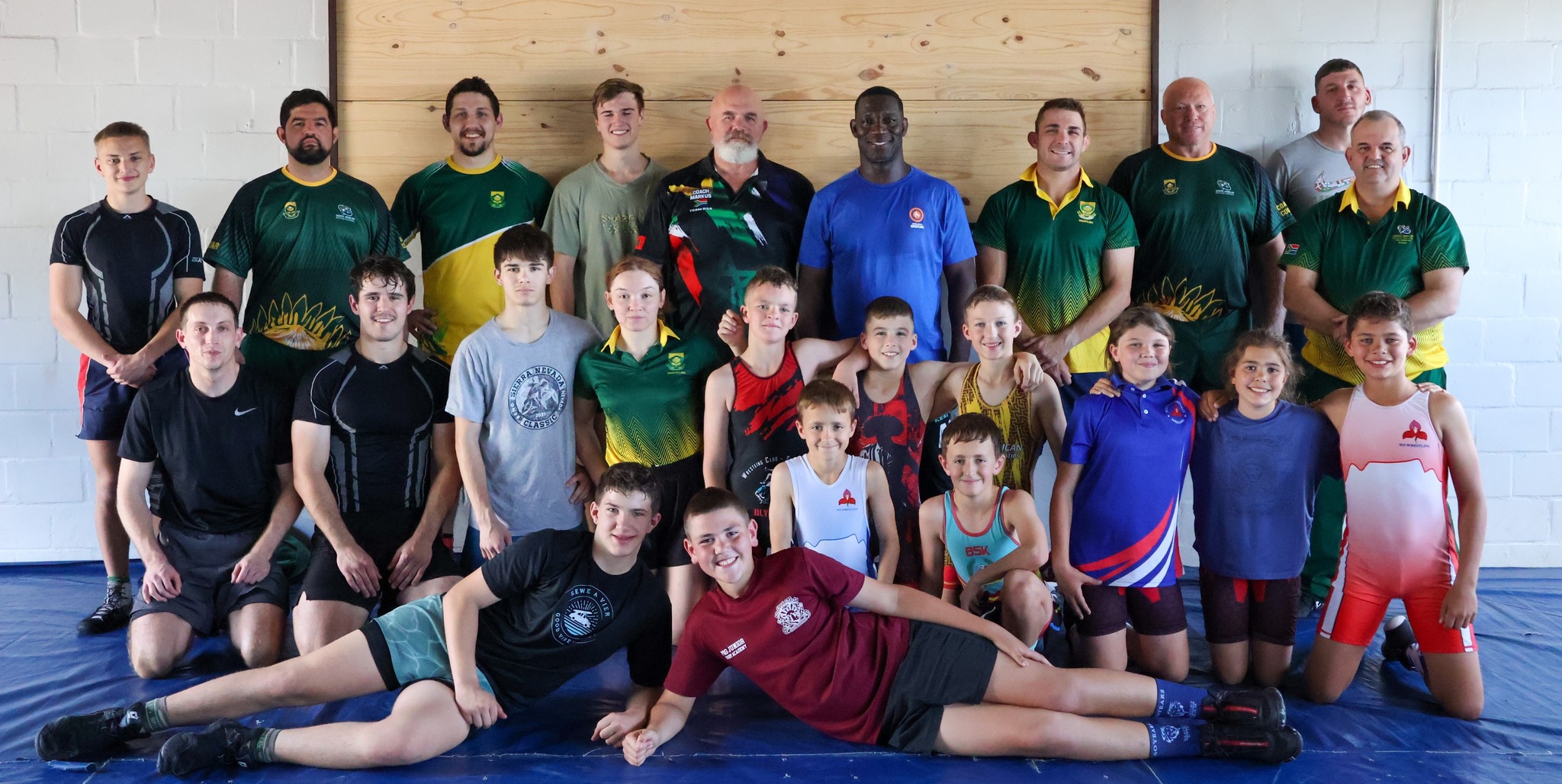South Africa completes phase one of UWW DNSS Program
Monday, November 17, 2025 - 08:24 By United World Wrestling Press

PRETORIA, South Africa (November 17) -- The South African Wrestling Federation successfully completed the first phase of the United World Wrestling National Development and Support Strategy (DNSS) from October 17 to 26.
Under the supervision of Vincent AKA, UWW International Development Officer for Africa, and the coordination of Markus DEKKER, member of the SAWF Coaches Council, a nationwide development mission was undertaken. The UWW-SAWF team visited provincial associations, conducting technical assessments, talent identification sessions, and workshops for coaches.

Using the UWW National Federation Assessment Tool (NFAT), the mission provided a detailed overview of the current state of wrestling in South Africa -- from grassroots participation to elite athlete preparation.
The tour covered major provinces including Western Cape, Eastern Province, Free State, Northern Cape, Gauteng North, Limpopo, Mpumalanga, and North West, engaging hundreds of athletes, coaches, and local administrators.
The assessment revealed strong technical potential among the U15 and U17 categories, as well as a growing passion for wrestling across communities and schools.
The mission also identified the need for stronger governance structures and more consistent communication between SAWF, provinces, and clubs to unify efforts under a national development plan.
Both teams will continue to work towards second phase of the program which will include establishing two regional pilot centers [Pretoria and Western Cape] to act as training and coordination hubs, launch a "School Integration" program linking PE teachers, schools, and wrestling clubs, developing a national athlete database to monitor and support emerging talents.
It will also aim to organize governance and compliance workshops to reinforce management capacity, implementing UWW coaching courses nationwide, forming a National Technical Committee to coordinate DNSS implementation and introducing measurable evaluation indicators to ensure accountability and progress tracking.


Share your thoughts.
Comments